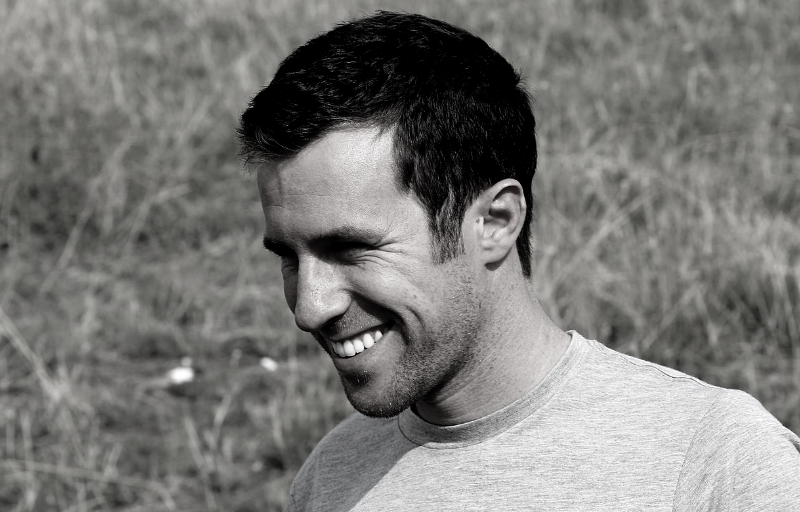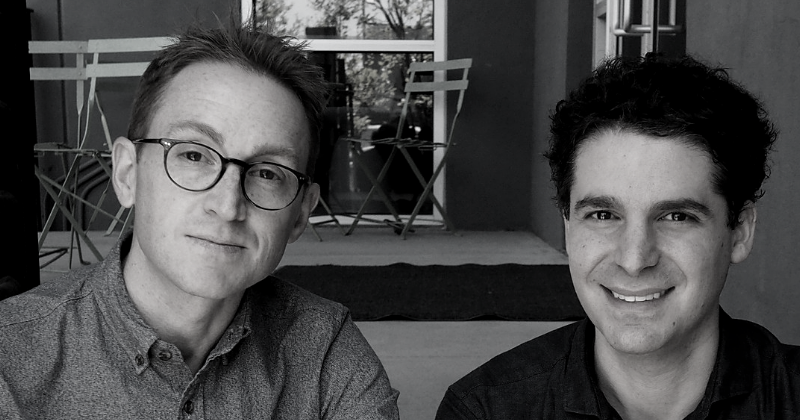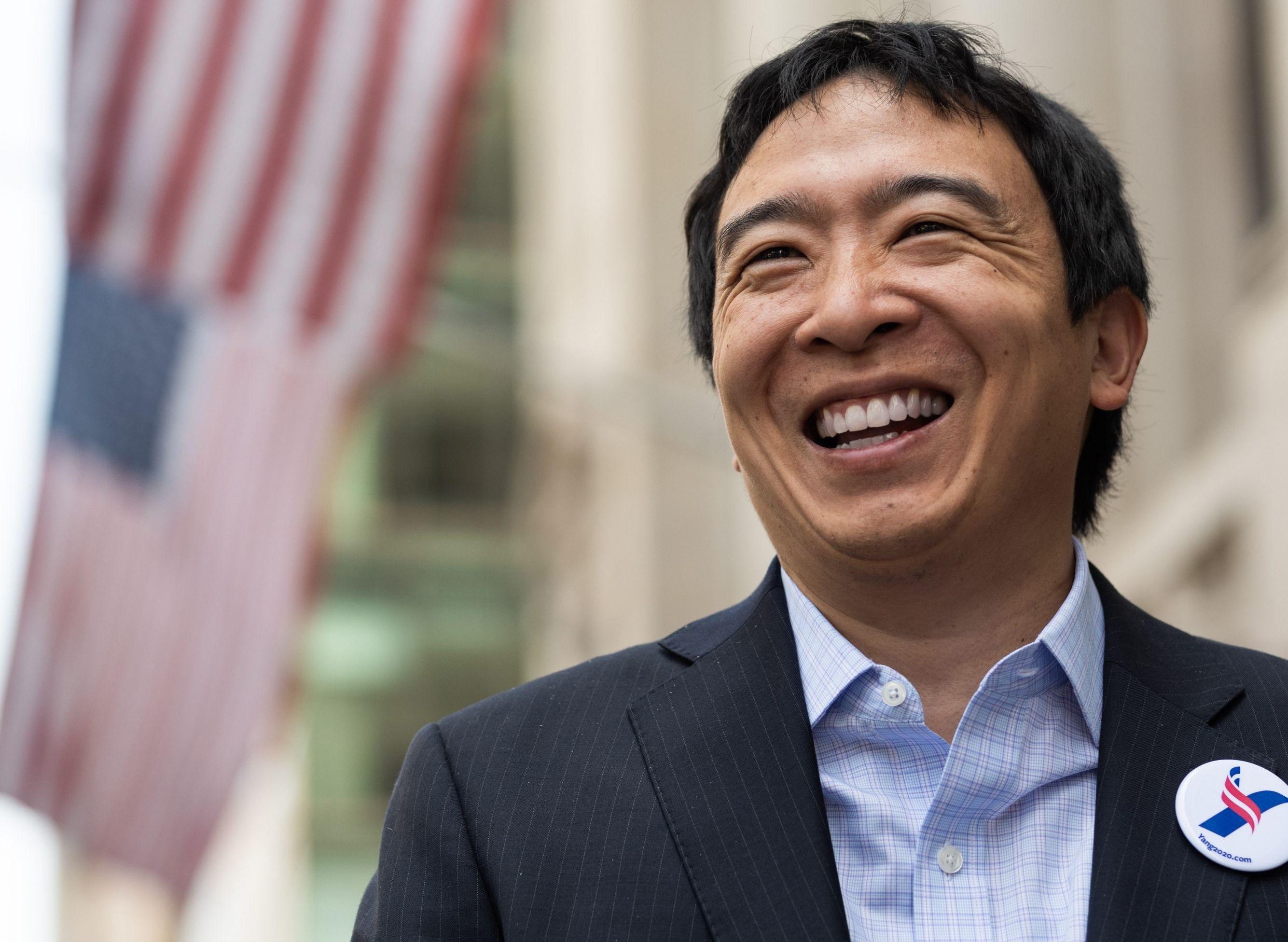


Exploring The Everyday: Janji Wants You To Change The World By Running
Exploring The Everyday is an interview series exploring interesting individuals or companies who are trying to make an impact on the lives of everyday people.
At the core of the Everyday Economy is people and their needs. One need that is universal around the world, no matter your race, religion, gender, or social standing, is water. Life needs this basic resource to survive, and yet, most of us take it for granted. A big population of the planet, 783 million people, do not have access to clean and safe water. That doesn’t include the fact that water costs are rising at an unprecedented rate due to climate change, and water shortages around the world. According to the American Water Works Association, nearly 1/3 of all American households may struggle to pay for water.
I sat down with David Spandorfer, co-founder of Janji, a running apparel company, to talk about the intersection of an everyday need, water, and an act of physical activity that almost everyone can do, running. Janji donates 5% of their proceeds to a clean water project somewhere around the globe. Running relies heavily on the need for hydration, so it’s easy to see where this donation choice comes from. Janji was born out of the simple realization that water is a necessity for life, and yet, easy access to water isn’t a luxury for most.
David also wanted to build a brand that helped people see the similarities in other humans, instead of the differences. Janji’s belief is that running is a great way to easily explore new places and understand the world around you. Really, at the heart of this brand is the belief that it really isn’t so hard to make the world a better place, and that’s something I think we can all get behind.
*This interview has been edited for length and clarity*
Talk me through the inception of Janji and the basis for your business model.
We created Janji in college as a way to use running, which is something that my cofounder and I both did in college, as a way to connect and really change the world. We feel like running generally is this unbelievably powerful tool that allows people who think that they can’t accomplish certain things to see that with running that’s not true. It’s a way for people to improve themselves, to be able to see the world around them, and to really live their best life. We wanted to create a brand that really allowed people to do that, and specifically do that through seasonal gear where all the pieces of clothing of a design inspired by somewhere in the world.
We travel to locations, for example Bolivia, and work with artists and makers there to design apparel. We also donate 5% of sales to a well-funded water project in that country whenever a piece is purchased. At Janji, we like to look at it like a really cool way of using running as a passport to not just see the world but to really experience the world around you.
Was there a moment in your life that was a source of inspiration for Janji?
Yes. We actually came up with this idea on the way to a championship cross country meet going into my senior year. It was one of these really hot days, about 90 degrees in Ohio and I was running the 10k. We had a thought along the lines of, “you know, if we didn’t have access to the water that we needed, or the support that we have, this would be impossible”, so imagine how people across the world feel not knowing how to access clean water. And during that meet we just started typing up the business plan right then and there.
Now look, I was a History major in college, my cofounder was in Urban Studies, so we didn’t really have a background in entrepreneurship or clothing. It really came down to connecting with the right people. Like talking through our ideas with some mentors, for instance a founder of Build-A-Bear is heavily involved in the school that I went to, and she helped guide us, and we ended up just calling up random running stores and asked if this would this be a product that they would be interested in, is it fulfilling a market need?
We applied for, and eventually won, a business plan competition the next year. Really, at the core of this business, it’s not just about the gear, but there is a sense of greater good behind it.
It’s apparent that this mission has been designed from day one as opposed to just kind of an afterthought.
There are a lot of running brands out there. And what makes us unique is that we want you to know that from the beginning, you can use Janji as this tool to really improve the world.
In the beginning, we used to show support for these countries by creating gear that looked like the flag of the country we were highlighting. Over time, we began to work with local artists for inspiration. We wanted it to be that when you put on a pair of Janji shorts you weren’t just wearing a plain black pair of men’s running shorts that everyone else had. We wanted each article of clothing to have a story behind it. I think really the future of commerce generally is you can either go for the cheapest option, or you can go with something that has a profound story behind it. One that highlights who you are, and we sort of interwove that into the brand itself as we grew this thing.
All of our gear is created to have meaning. That meaning can come from the designs, or from the unique features. For instance, we are the first and only brand to use alpaca. We use alpaca because it’s sustainable, it’s moisture wicking, it’s anti odor. It’s the perfect thing to pack for your next trip. And that really is emblematic of what we’re trying to do here at Janji. We want a great brand, but we want to create gear that tells a really cool story. We want to brand that tells a story, that’s sustainable, and really that has meaning in everything we do.
You mentioned that 5% of each sale goes to fund clean water projects. Walk me through how you source these projects and how you see these dollars making a meaningful impact.
The first thing is to make sure we are finding the right partner. It can be difficult to find the right partner in all these different countries, so that plays a part in how we choose the countries. But we’re really about figuring out how we can empower these organizations to do their best work. These organizations are on the ground, active in the communities so that the people who live here know it’s not just a bunch of people who work in some office in the U.S. helping them.
When I visited an organization that we work with in Kenya called Evidence Action, we visited the site in which these people were getting these chlorine water pumps and we helped fund an education around these clean water pumps. You might be able to build these clean water pumps, but if people do not know how to use them, it’s sort of useless if it falls into disrepair. When we’re finding these partners and trying to support these partners we want to make sure that they are being capital effective but also are really ingrained the community to make the most difference.
So how do you go about picking the country to highlight and find artists or inspirations there?
Every season we pick a different country. This past fall we did Libya, the season before that we did Uganda, and we’re going to be doing Cambodia in 2019. The goal is really to figure out how can we highlight and showcase these places around the world that traditionally a normal tourist or a normal runner wouldn’t necessarily go to, but we know there’s so much beauty and art to be seen there.
And look, there are two things that I think that we do that connects everyone. One is water, everywhere people are, there’s water, we need water to survive. The other thing is, we believe that running is something that everyone can do.Highlighting these cool places around the world, be it in the mountains in Bolivia or in the chaos of Katmandu in Nepal, we want to highlight those stories and highlight those people who are doing really cool things. Doing cool running things all around the world.
Something you said that really struck me there is the two things you believe connects people, water and running. Let’s dive a bit into the water aspect, how is this wrapped up into your business?
Like I mentioned earlier, we started Janji in college because we had a moment of clarity about access to water in the world. We wanted to find a way to give back in something that’s essential and something that’s really needed around the world. There are 7 hundred million remind people that rely on water but have to walk six kilometers or more to fetch water. That’s far from an ideal state. And so, if we can use Janji’s cliental, people who run and need water, as a way to empower people around the world who are struggling to find water, then I think that we can do some really cool things.
In terms of the running piece you know there is a lot of research around the evolution of humans and running. With the right kind of training, any human can actually out run a very fast horse. Humans are the mammals that can run the longest distances, and that has been elemental, both for our own survival and evolution. So we want to encourage people around the world to run and use running as an amazing tool to see the world. One of the first things I do when I travel to a new place is lace up my shoes and go for a run.
Can you talk a little bit more about the trips you take to these countries for inspiration? You not only bring employees, but you also bring along Janji customers, right? What have you learned in organizing these trips?
We run several trips a year so this year we’ll do between four and six. These are what we call the “nomadic run series”. In early January we’re taking people to Mexico City and doing a trip where there’s running, exploring and great food and we will get a great partner who is on the ground who knows Mexico City a lot more than we do. We’re also doing trips to Bolivia, Cambodia and we’re even going to do one in Vermont, which I know seems to be a little out there. But you know what we want to do is use running to tie this back to our mission statement as a way to explore and connect to change the world.
Doing these trips, I think, helps put this brand in perspective and it really helps crystallize the brand itself. People who walk into these trips have just such an unbelievable life changing time that we think that if more people were to get out there, to go run, go explore the world, I think the world would be a much better place, in terms of understanding other people not as a “them” but as an “us”. And that’s what we hope these trips represent.
So how do these trips differ from other preprogrammed trips, other than the running aspect?
They’re definitely a little harder, more physically straining. Our goal is not to exhaust everyone with just running, we welcome all people and skill levels. For instance, on our last trip to Mexico which was in Oaxaca, we went to sweat lounges and did these cool traditionally you know Oaxacan activities that was both a little bit challenging, but also incredibly relaxing. Sitting in a very hot sauna for a while is not particularly comfortable, but it allowed you to contemplate a lot of things and reflect on your life.
When we go to Bolivia later this year in May, we’re going to be running on Death Road. Death Road starts out in snowy conditions and as you go down the mountain you go through every single type of climate and through jungles. It’s just really this crazy cool experience that highlights the diversities of Bolivia but also, you put a little strain on yourself too.
Do you have a favorite customer success story or, a moment that personalizes the relationship that you have with your customers and how you are a factor of their everyday lives?
So what we’re about at Janji is really figuring out how do we build and how do we really establish this really cool community that cares about something more than just running the fastest possible time. And so for instance, we’ve got some customers who heard about us when we did like our first pop up store and they fell in love with the brand. They wanted to start an ambassador group. So we started Ambassador group called the Janji core and Janji core has since evolved to another group that’s called Janji Collective and we have over a thousand people this group who are just diehard Janji people. Some of whom actually pay to join this group and they really care about making the world a little better place.
These people love Janji so much they actually started their running group totally, unaffiliated or highly encouraged by us, which has a few dozen people meet every single Thursday at 7:00am at Long Fellows Coffee and they just use running as this way to see the world around them. And you know, yes people there are wearing Janji, yes we love the product and think it’s meant for everyday use, but we’re also really just interested in how we connect and together make the world a better place both around the world in Bolivia and in Uganda but also here in our own backyard.





